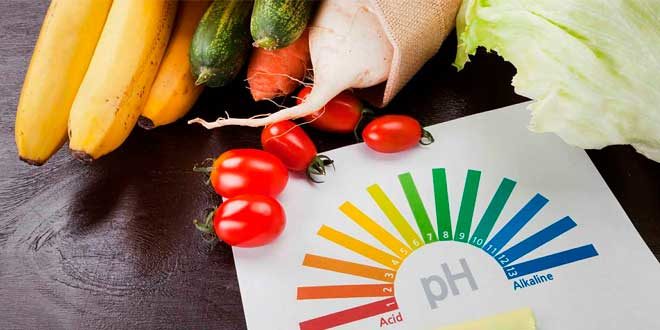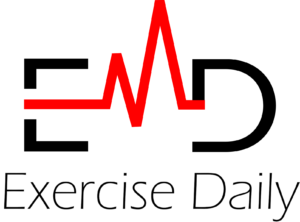Table of Contents
Exercise Daily – In the quest for optimal performance, athletes are constantly seeking ways to improve their diet and nutrition. One approach that has gained popularity in recent years is the alkaline plant-based diet. This dietary regimen focuses on consuming alkaline-forming foods, which are believed to promote a balanced pH level in the body and provide numerous benefits for athletic performance. We will explore the secrets of the alkaline plant-based diet and how it can unlock peak performance for athletes.
The Benefits of an Alkaline Plant-Based Diet for Athletes
Adopting an alkaline plant-based diet offers several advantages for athletes. Firstly, it helps to reduce inflammation in the body, which is crucial for optimal recovery and injury prevention. By consuming foods that have an alkalizing effect, athletes can support their body’s natural healing processes and reduce the risk of chronic conditions.
Furthermore, an alkaline plant-based diet provides a rich source of essential nutrients, including vitamins, minerals, and antioxidants. These nutrients are vital for energy production, muscle repair, and overall vitality. Athletes who follow this diet often report increased energy levels, improved digestion, and enhanced mental clarity.

Alkaline Foods to Include in Your Diet
To maintain an alkaline pH level, athletes should incorporate a variety of alkaline foods into their diet. Here are some key categories of alkaline foods to consider:
1. Green Leafy Vegetables
Leafy greens such as spinach, kale, and Swiss chard are excellent sources of alkaline minerals like calcium and magnesium. These minerals play a crucial role in maintaining bone health, supporting muscle function, and optimizing nerve signaling.
2. Cruciferous Vegetables
Broccoli, cauliflower, and Brussels sprouts are part of the cruciferous vegetable family, known for their high alkaline content. These vegetables are also rich in phytonutrients and fiber, contributing to improved digestion and gut health.
3. Fruits
Citrus fruits like lemons, limes, and grapefruits may seem acidic but have an alkalizing effect on the body. Other alkaline fruits include watermelon, avocados, and berries, which provide a wide range of vitamins, antioxidants, and hydration.
4. Whole Grains
Quinoa, brown rice, and oats are alkaline-forming grains that offer sustained energy for athletes. These whole grains are also packed with fiber, promoting healthy digestion and supporting stable blood sugar levels.
5. Nuts and Seeds
Almonds, walnuts, and chia seeds are alkaline sources of healthy fats, protein, and minerals. They provide a satiating effect, making them ideal snacks for athletes on the go.
6. Legumes
Beans, lentils, and chickpeas are alkaline plant-based protein sources that offer a range of essential nutrients. They are rich in fiber, iron, and B vitamins, which support muscle growth, oxygen transport, and energy production.

Alkaline Drinks to Boost Performance
In addition to alkaline foods, certain beverages can contribute to optimal athletic performance:
1. Lemon Water
Starting the day with a glass of warm lemon water can kickstart your metabolism and alkalize your body. Lemons are high in vitamin C and have natural detoxifying properties.
2. Herbal Teas
Herbal teas like chamomile, ginger, and peppermint are alkaline beverages that can soothe digestion, reduce inflammation, and provide relaxation benefits. They are also hydrating alternatives to sugary drinks.
3. Green Juices
Freshly pressed green juices made from alkaline vegetables like cucumber, celery, and spinach can provide a concentrated dose of vitamins, minerals, and antioxidants. These juices are easily absorbed by the body, promoting rapid recovery and rejuvenation.
4. Almond Milk
Almond milk is a nutritious and alkaline substitute for dairy milk. It is rich in vitamin E, calcium, and healthy fats, making it an ideal choice for athletes looking to support their bone health and overall well-being.

Alkalize or Die: The Alkaline Diet for Athletes
“Alkalize or Die” is a book written by Dr. Theodore A. Baroody, which focuses on the importance of maintaining an alkaline balance in the body for optimal health. Although there is no specific information available about this book’s connection to peak performance for athletes, I can provide you with a summary of its key concepts and potential benefits for athletes in general.
In “Alkalize or Die,” Dr. Baroody presents the idea that many health issues and diseases are caused by an overly acidic internal environment within the body. The book emphasizes the significance of maintaining a slightly alkaline pH level to support proper bodily functions and overall well-being. Dr. Baroody suggests that acid-forming diets, stress, environmental factors, and unhealthy lifestyles can lead to acidosis, which may contribute to various health problems.

While the book primarily focuses on the relationship between pH balance and overall health, athletes may benefit from the concepts discussed in “Alkalize or Die” in the following ways:
Improved Recovery:
Balancing the body’s pH level can support the efficient elimination of waste products and toxins, potentially aiding in post-workout recovery and reducing muscle soreness.
Enhanced Energy Levels:
Alkalizing the body through a healthy diet and lifestyle practices may contribute to increased energy and stamina, allowing athletes to perform at their peak for longer durations.
Optimal Nutrient Absorption:
Maintaining an alkaline pH may improve the body’s ability to absorb essential nutrients from food, which is vital for athletes seeking to optimize their nutrition and support peak performance.
Reduced Inflammation:
Acidosis has been linked to increased inflammation in the body. By promoting alkalinity, athletes may potentially experience reduced inflammation, facilitating better injury prevention and recovery.
While “Alkalize or Die” may not directly address peak performance for athletes, its focus on maintaining an alkaline balance in the body can be valuable in supporting overall health, recovery, and energy levels. It is important to note that individual experiences may vary, and consulting with a healthcare professional or registered dietitian is recommended for personalized advice regarding dietary choices and performance optimization.
The Role of pH Balance in Athletic Performance
Maintaining an optimal pH balance is crucial for athletes to perform at their best. Here’s why:
1. Acidic vs. Alkaline pH Levels
The pH scale ranges from 0 to 14, with 7 being neutral. pH levels below 7 are considered acidic, while pH levels above 7 are alkaline. The human body naturally strives to maintain a slightly alkaline pH level of around 7.4.
2. Effects of Acidic Diets on Performance
Consuming a diet high in acidic foods, such as processed meats, refined sugars, and caffeine, can disrupt the body’s pH balance. This acidity can lead to decreased energy, increased inflammation, and impaired recovery, ultimately affecting athletic performance.
3. Alkaline Diet and Enhanced Endurance
By following an alkaline plant-based diet, athletes can optimize their endurance levels. Alkaline-forming foods provide a steady source of energy, improve oxygen utilization, and reduce the buildup of lactic acid during intense exercise.
4. Alkaline Diet and Muscle Recovery
Proper muscle recovery is essential for athletes to avoid fatigue and injury. The alkaline plant-based diet promotes a favorable environment for muscle repair and reduces the risk of oxidative stress, allowing athletes to bounce back faster and train more effectively.

Implementing the Alkaline Plant-Based Diet in Your Training Regimen
Incorporating the alkaline plant-based diet into your training regimen requires careful planning and consideration. Here are some key aspects to keep in mind:
1. Meal Planning for Athletes
Athletes should work with a nutritionist or dietitian to create a meal plan that meets their specific needs. This plan should include a balance of alkaline foods, macronutrients, and adequate calorie intake to support training demands.
2. Pre-Workout and Post-Workout Nutrition
Optimal pre-workout and post-workout nutrition are crucial for performance and recovery. Athletes can incorporate alkaline foods like bananas, sweet potatoes, and green smoothies into their pre-workout and post-workout meals to fuel their sessions and replenish nutrients.
3. Hydration and Electrolyte Balance
Staying hydrated is vital for athletic performance. Athletes should aim to drink alkaline water or infused water with added electrolytes to maintain proper hydration and electrolyte balance during training.
4. Balancing Macronutrients
Athletes need to strike a balance between carbohydrates, proteins, and fats in their diet. By incorporating alkaline plant-based sources of each macronutrient, athletes can fuel their workouts, support muscle growth, and optimize overall performance.
Success Stories: Athletes Thriving on an Alkaline Plant-Based Diet
Several professional athletes have embraced the alkaline plant-based diet and witnessed remarkable results. From tennis superstar Novak Djokovic to NBA champion Kyrie Irving, these athletes credit their performance and longevity to the alkaline diet’s benefits.
The Role of Acidic Foods in the Body
While some acidic foods are essential for a balanced diet, excessive consumption can disrupt the body’s acid-alkaline equilibrium. High acid levels can lead to inflammation, weakened immune function, and other health issues. Athletes, in particular, need to be mindful of their acid intake to support their overall well-being and performance.
How the Alkaline Diet Promotes Weight Loss
The alkaline diet is based on the unproven theory that eating more alkaline foods and avoiding acidic or neutral foods can create an alkaline environment in the body, promoting weight loss and reducing the risk of chronic diseases. Advocates of the alkaline diet say that certain health conditions are linked to the pH of the food and that by favoring alkaline foods, you can help reduce the risk of osteoporosis, among other ailments.
The diet recommends consuming a list of alkaline foods, such as plant proteins and sea vegetables, while limiting acidic and neutral foods commonly found in the Western diet, like packaged foods. By going alkaline, the diet emphasizes eating healthy foods in favor of unhealthy ones, like fruits and vegetables, which have been shown to prevent disease. While the alkaline diet is generally safe, it is also considered a restrictive diet, as it requires avoiding many common foods. However, following the principles of this trending diet can be beneficial for overall health and weight management.
Boosting Energy Levels with Alkaline Foods
The alkaline diet promotes the consumption of energy-boosting foods that can enhance an athlete’s performance. Fruits, vegetables, and whole grains are rich in vitamins, minerals, and antioxidants that support energy production and help combat fatigue during workouts and competitions.
Alkaline Foods for Muscle Recovery and Performance
Athletes often face muscle soreness and fatigue due to intense training sessions. The alkaline diet emphasizes foods with anti-inflammatory properties, such as leafy greens, berries, and nuts. These foods can aid in reducing exercise-induced inflammation, promoting faster recovery, and optimizing muscle performance.

Alkaline Water and Hydration
Proper hydration is vital for athletes, and the alkaline diet suggests consuming alkaline water to support hydration. Alkaline water has a higher pH level than regular water, potentially offering additional hydration benefits. However, more research is needed to establish the direct impact of alkaline water on athletic performance.
Potential Drawbacks and Considerations
While the alkaline diet offers numerous potential benefits, it’s essential to consider individual needs and preferences. Strict adherence to the diet may require eliminating certain foods and can pose challenges for athletes with specific nutritional requirements. Additionally, consulting a healthcare professional or sports nutritionist is recommended before making any significant dietary changes.
Incorporating the Alkaline Diet into an Athlete’s Routine
Athletes can gradually incorporate the alkaline diet into their routine by increasing the consumption of alkaline foods while reducing acidic options. Meal planning and preparation are key to ensuring a balanced intake of macronutrients and maintaining optimal performance.
Alkaline Diet Recipes and Meal Ideas
To make the alkaline diet enjoyable and sustainable, athletes can explore a variety of recipes and meal ideas. Some examples include green smoothies, vegetable stir-fries, quinoa salads, and plant-based protein bowls. Experimenting with different flavors and incorporating alkaline ingredients can make meals both nutritious and delicious.
Monitoring pH Levels for Optimal Performance
Athletes can monitor their pH levels using test strips to gain insights into their acid-alkaline balance. Regular monitoring can help identify any imbalances and guide adjustments to the diet and training regimen. However, it’s important to note that pH testing alone may not provide a comprehensive assessment of an athlete’s overall health and performance.
Alkaline Diet Supplements and Enhancements
While a well-balanced diet should provide most of the necessary nutrients, some athletes may consider alkaline diet supplements or enhancements. These can include alkaline powders, green superfood blends, or mineral supplements. Athletes should exercise caution when incorporating supplements and consult with professionals to ensure their suitability.
Conclusion
The alkaline plant-based diet holds immense potential for athletes seeking peak performance. By incorporating alkaline foods and beverages into their diet, athletes can support their body’s natural balance, reduce inflammation, and optimize recovery. With careful planning and consideration, athletes can unlock their full potential and excel in their chosen sports.
FAQs – Alkaline Plant-Based Diet
1. Is the alkaline plant-based diet suitable for all athletes?
While the alkaline plant-based diet can offer benefits for many athletes, it’s essential to consider individual needs and consult with a healthcare professional or registered dietitian. Factors such as specific sports, training intensity, and personal dietary preferences should be taken into account.
2. How long does it take to notice the benefits of an alkaline plant-based diet?
The time it takes to experience the benefits of an alkaline plant-based diet can vary from person to person. Some athletes may notice improvements in energy levels, digestion, and recovery within a few weeks, while others may take longer. Consistency and adherence to the diet are key factors in achieving the desired results.
3. Can I still consume acidic foods occasionally while following the alkaline plant-based diet?
While the goal of the alkaline plant-based diet is to prioritize alkaline-forming foods, occasional consumption of acidic foods is generally acceptable. However, it’s important to maintain a balance and focus on predominantly alkaline foods to support optimal pH balance and performance.
4. Are there any potential drawbacks or risks associated with this diet for athletes?
The alkaline plant-based diet, when properly planned, is generally considered safe and beneficial for athletes. However, it’s crucial to ensure adequate nutrient intake, especially protein, vitamins, and minerals, which can sometimes be challenging with a plant-based approach. Athletes should monitor their nutrient levels and consider supplementation if necessary.
5. Can the alkaline plant-based diet improve mental focus and concentration?
While the alkaline plant-based diet may contribute to improved overall well-being, including mental clarity, it’s important to note that individual responses may vary. Proper nutrition, including a balanced intake of macronutrients and micronutrients, along with other lifestyle factors, can positively impact cognitive function and focus for athletes.





